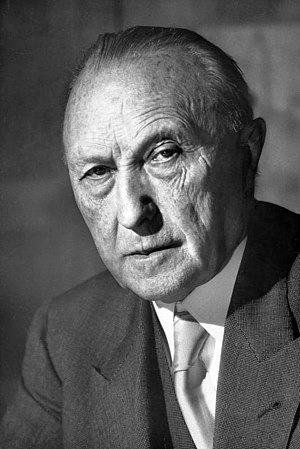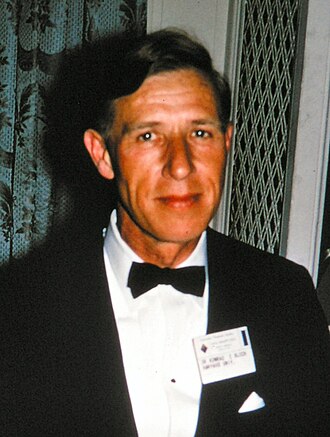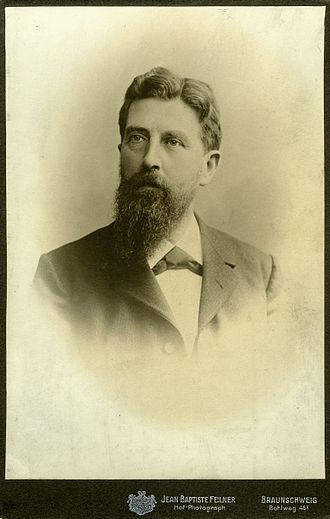Discover Your Roots
SIGN UPDiscover Your Roots
SIGN UPKonrad is a male name of English origin that exudes strength and wisdom. Meaning "Bold Counsel," it reflects the characteristics of a courageous and insightful leader. This German name has found prominence in various fields, with notable figures such as Konrad Adenauer, a renowned German politician, and Konrad Lorenz, an influential Austrian scientist. The name has a strong historical significance and continues to be embraced by individuals across different cultures. Its association with esteemed personalities in politics, science, arts, and sports underscores its enduring appeal. Konrad's timeless meaning of boldness and counsel makes it a compelling choice for parents seeking a name that embodies strength and wisdom for their sons.

Konrad Adenauer (5 January 1876 – 19 April 1967) was a prominent German statesman and the first chancellor of the Federal Republic of Germany from 1949 to 1963. He also served as the leader of the Christian Democratic Union (CDU) from 1946 to 1966. Adenauer was a devout Catholic and a leading politician of the Catholic Centre Party in the Weimar Republic. He held various positions, including Mayor of Cologne and president of the Prussian State Council. As chancellor, Adenauer focused on rebuilding the West German economy after World War II and establishing close relations with France, the United Kingdom, and the United States. He was known for his intense work habits and political instinct, and was committed to an anti-communist, Atlanticist foreign policy. Under his leadership, West Germany reestablished its military forces and intelligence services, joined NATO, and signed the Treaty of Rome, making him one of the "Founding fathers of the European Union." Adenauer's legacy includes his significant contributions to European unity and the restoration of West Germany's position on the world stage.

Konrad Wolf (20 October 1925 – 7 March 1982) was an influential East German film director, known for his contributions to the film industry and his complex personal history. Born into a family deeply involved in politics and the arts, Wolf's upbringing and experiences greatly influenced his career. As the son of writer, doctor, and diplomat Friedrich Wolf, and the younger brother of Stasi spymaster Markus Wolf, he was exposed to a world of intellectual and political discourse from a young age. Wolf's early life was marked by displacement and uncertainty, as his family fled Germany due to the rise of the Nazis, eventually settling in the Soviet Union.His experiences as a teenager during World War II, including voluntary service in the Red Army and his subsequent cultural and educational pursuits, deeply impacted his artistic vision. Wolf's films, such as "Sterne" (Stars) and "Goya or the Hard Way to Enlightenment," received critical acclaim and international recognition, earning prestigious awards at Cannes and the Moscow International Film Festival. Throughout his career, he also held significant positions within the cultural and artistic institutions of East Germany.Konrad Wolf's legacy continues to be celebrated, and his impact on German cinema remains significant. His body of work and his personal journey reflect the complexities of art, politics, and identity during a tumultuous period in European history. Wolf's contributions to film and his unique life story have left an enduring mark on the cultural landscape.

Konrad Emil Bloch (1912-2000) was a renowned German-American biochemist who was awarded the Nobel Prize in Physiology or Medicine in 1964, jointly with Feodor Lynen, for their groundbreaking discoveries in cholesterol and fatty acid metabolism regulation. Born in Neisse, Germany, Bloch, from a Jewish family, fled to Switzerland and later settled in the United States due to the Nazi persecutions of Jews. He held esteemed positions at Yale Medical School, University of Chicago, and Harvard University, contributing significantly to the field of biochemistry. His research on the synthesis of cholesterol and fatty acids, as well as the conversion of squalene to cholesterol, revolutionized the understanding of these vital biological processes. Bloch's significant contributions were recognized through numerous accolades, including being elected as a Fellow of the Royal Society and receiving the National Medal of Science. He led a fulfilling personal life, being married to Lore Teutsch and enjoying skiing, tennis, and music. Bloch passed away in 2000, leaving an enduring legacy in the scientific community and beyond.

Konrad Koch, born on February 13, 1846, in Braunschweig, Duchy of Brunswick, was a German teacher and football pioneer. He studied theology and philology at the universities of Göttingen, Berlin, and Leipzig before returning to Braunschweig to become a teacher. Koch played a pivotal role in introducing ball games as part of physical education in German schools and is credited with organizing one of the first-ever football matches in Germany in 1874. He published the first German version of the football rules in 1875, which was quickly adopted by other schools and spread to various cities. Koch was also a close friend of the novelist Wilhelm Raabe and a member of the social club Die ehrlichen Kleiderseller zu Braunschweig. His life has been loosely portrayed in the 2011 German drama film "Lessons of a Dream." Notable works by Koch include "Der erziehliche Werth der Schulspiele" and "Die Geschichte des Fußballs im Altertum und in der Neuzeit." For further insight into Koch's life, biographies by Kurt Hoffmeister and Malte Oberschelp are available.

Konrad Frey (24 April 1909 – 24 May 1974) was a renowned German gymnast celebrated for his exceptional achievements at the 1936 Summer Olympics. He clinched an impressive total of 3 Gold medals and 6 medals in total, securing his position as the most successful German male competitor at a single Olympics. His remarkable feat surpassed that of his compatriot Alfred Schwarzmann and solidified his status as the most accomplished athlete of host nation Germany. Despite the formidable competition, including American Jesse Owens, who secured four Gold medals, Frey's prowess on the gymnastics stage was unparalleled. Throughout his career, he also claimed the German Champion title in Men's individual all-round in 1932, 1935, and 1937. Post-World War II, Frey transitioned into a teaching role, leaving behind a lasting legacy in the world of gymnastics. His enduring impact continues to inspire athletes and enthusiasts alike.
All images displayed on this page are sourced from Wikipedia or Wikimedia Commons.We use these images under their respective Creative Commons or public domain licenses. Wherever applicable, author attributions and license information are provided. If you believe an image is used incorrectly or outside its license terms, please contact us so that we can review and correct the issue.